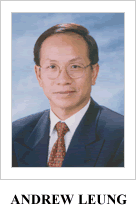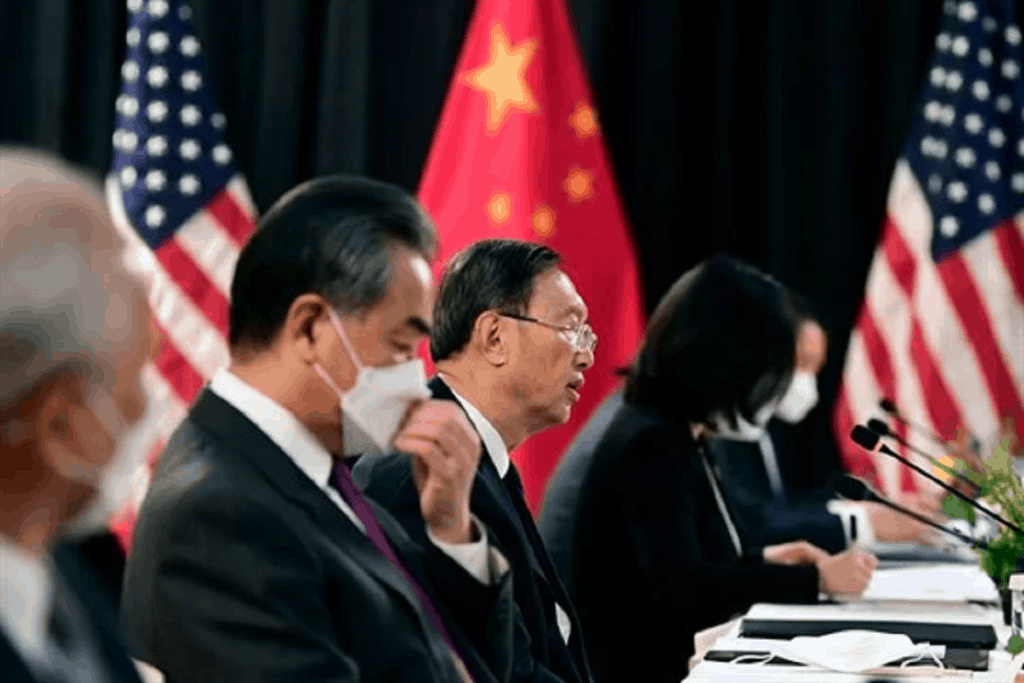The New Concert of Powers: How to Prevent Catastrophe and Promote Stability in a Multipolar World
By Andrew K.P. Leung (International and Independent China Strategist. Chairman and CEO, Andrew Leung International Consultants and Investments Limited)
 With the waning if not passing of Pax Americana, the world is increasingly torn between fears and denialism in trying to avoid the unavoidable. A more powerful, assertive and self-confident China sees its time has come to return to the future where a large part of the world had been dominated by China and India, the two oldest Eastern civilizations, for millennia before the 17th century.
With the waning if not passing of Pax Americana, the world is increasingly torn between fears and denialism in trying to avoid the unavoidable. A more powerful, assertive and self-confident China sees its time has come to return to the future where a large part of the world had been dominated by China and India, the two oldest Eastern civilizations, for millennia before the 17th century.
Amidst a transitional era of uncertainty, Richard N. Haass and Charles A. Kupchan’s ground-breaking insight for a “New Concert of Powers” in their 23 March 2021 think-piece in Foreign Policy has much to commend itself. Haass is President of the Council on Foreign Relations, and Kupchan is Professor of International Affairs at Georgetown University and a Senior Fellow at the Council on Foreign Relations. Both are éminences grises in global affairs and international relations.
The concept borrows from the Concert of Europe, a loose consensus among the Great Powers of 19th Century Europe to maintain balance of powers through a mutual commitment to upholding the territorial settlement at the 1815 Congress of Vienna. The consensus allowed for cooperation, disputes, as well as jockeying for position and influence. After the Napoleonic Wars, the Concert managed to sustain relative peace and stability in Europe for a hundred years until the 1914 First World War.
Far from ivory tower theorizing, there are many practical considerations in the Foreign Affairs thick-piece:
“A global concert would have six members: China, the European Union, India, Japan, Russia, and the United States.”
“A global concert would be a consultative, not a decision-making, body. It would address emerging crises yet ensure that urgent issues would not crowd out important ones, and it would deliberate on reforms to existing norms and institutions. This steering group would help fashion new rules of the road and build support for collective initiatives but leave operational matters, such as deploying peacekeeping missions, delivering pandemic relief, and concluding new climate deals, to the UN and other existing bodies.”
“Members would send permanent representatives of the highest diplomatic rank to the global concert’s standing headquarters. Although they would not be formal members of the concert, four regional organizations—the African Union, Arab League, Association of Southeast Asian Nations (ASEAN), and Organization of American States (OAS)—would maintain permanent delegations at the concert’s headquarters.”
“A global concert would shun codified rules, instead relying on dialogue to build consensus. Like the Concert of Europe, it would privilege the territorial status quo and a view of sovereignty that precludes, except in the case of international consensus, using military force or other coercive tools to alter existing borders or topple regimes.”
“At the same time, the concert would provide an ideal venue for discussing globalization’s impact on sovereignty and the potential need to deny sovereign immunity to nations that engage in certain egregious activities. Those activities might include committing genocide, harboring or sponsoring terrorists, or severely exacerbating climate change by destroying rainforests.” (Japan’s recent plan to dump radioactive water in the ocean may fit this category.)
“Members would reserve the right to take unilateral action, alone or through coalitions, when they deem their vital interests to be at stake. Direct strategic dialogue would, though, make surprise moves less common and, ideally, unilateral action less frequent.”
“Although members would, in principle, endorse a norm-governed international order, they would also embrace realistic expectations about the limits of cooperation and compartmentalize their differences. “
“A global concert would give its members wide leeway when it comes to domestic governance. They would effectively agree to disagree on questions of democracy and political rights, ensuring that such differences do not hinder international cooperation….. But the concert would also work toward a shared understanding of what constitutes unacceptable interference in other countries’ domestic affairs and, as a result, are to be avoided.”
“The international system, for one, will exhibit characteristics of both bipolarity and multipolarity. There will be two peer competitors—the United States and China. Unlike during the Cold War, however, ideological and geopolitical competition between them will not encompass the world. On the contrary, the EU, Russia, and India, as well as other large states such as Brazil, Indonesia, Nigeria, Turkey, and South Africa, will likely play the two superpowers off each other and seek to preserve a significant measure of autonomy.”
“…. the twenty-first century will be politically and ideologically diverse. Depending on the trajectory of the populist revolts afflicting the West, liberal democracies may well be able to hold their own. But so too will illiberal regimes. Moscow and Beijing are tightening their grip at home, not opening up. Stable democracy is hard to find in the Middle East and Africa. Indeed, democracy is receding, not advancing, worldwide—a trend that could well continue. The international order that comes next must make room for ideological diversity.”
“Pax Americana is now running on fumes. ..The absence of U.S. leadership during the COVID-19 crisis was striking; each country was on its own. President Biden is guiding the United States back to being a team player, but the nation’s pressing domestic priorities and the onset of multipolarity will deny Washington the outsize influence it once enjoyed.”
“Allowing the world to slide toward regional blocs or a two-bloc structure similar to that of the Cold War is a nonstarter. The United States, China, and the rest of the globe cannot fully uncouple when national economies, financial markets, and supply chains are irreversibly tethered together. A great-power steering group is the best option for managing an integrated world no longer overseen by a hegemon. A global concert fits the bill.”
Terry Su, president of a Hong Kong-based online publishing house and geopolitics think tank, opined in the South China Morning Post in support of the Concert idea, provided that Japan and India are removed from the suggested list of Members. I tend to agree.
After all, the idea is a proposed mechanism for Great Powers, defined in terms of substantial global, rather than regional, gravitas, and not in terms of size of economy (otherwise Russia would hardly qualify). But more importantly, India and Japan are seen by China and Russia as US “allies”, whose formal inclusion may upset the intended balance. In any case, depending on issues, they will often have to be involved as important Members of the United Nations and other international organizations and platforms including the G7 or G20.
Having said all this, the world is still in transition. Everything remains in a flux. The Concert idea may need time to incubate and nurture, even absent a torrent of destabilizing undercurrents amidst an intensifying Great Power rivalry.
Author: Andrew K.P. Leung (International and Independent China Strategist. Chairman and CEO, Andrew Leung International Consultants and Investments Limited)
(The views expressed in this article belong only to the author and do not necessarily reflect the views of World Geostrategic Insights).
Image Credit: Frederic J. Brown/AP







